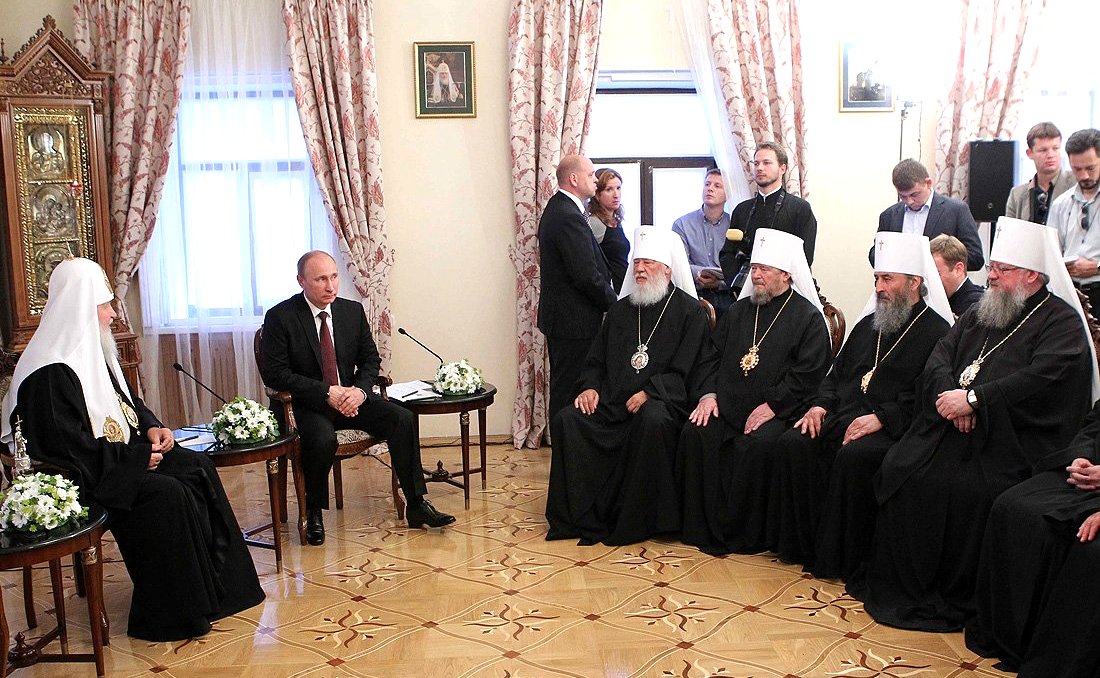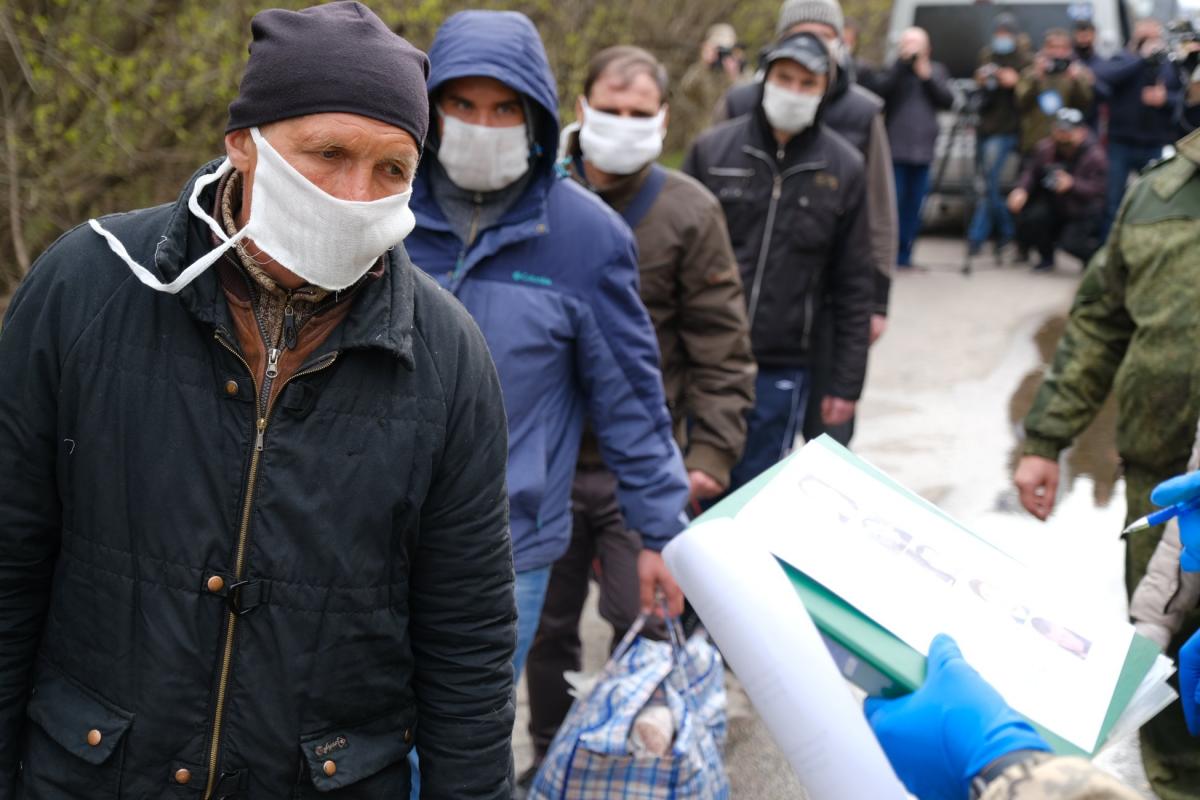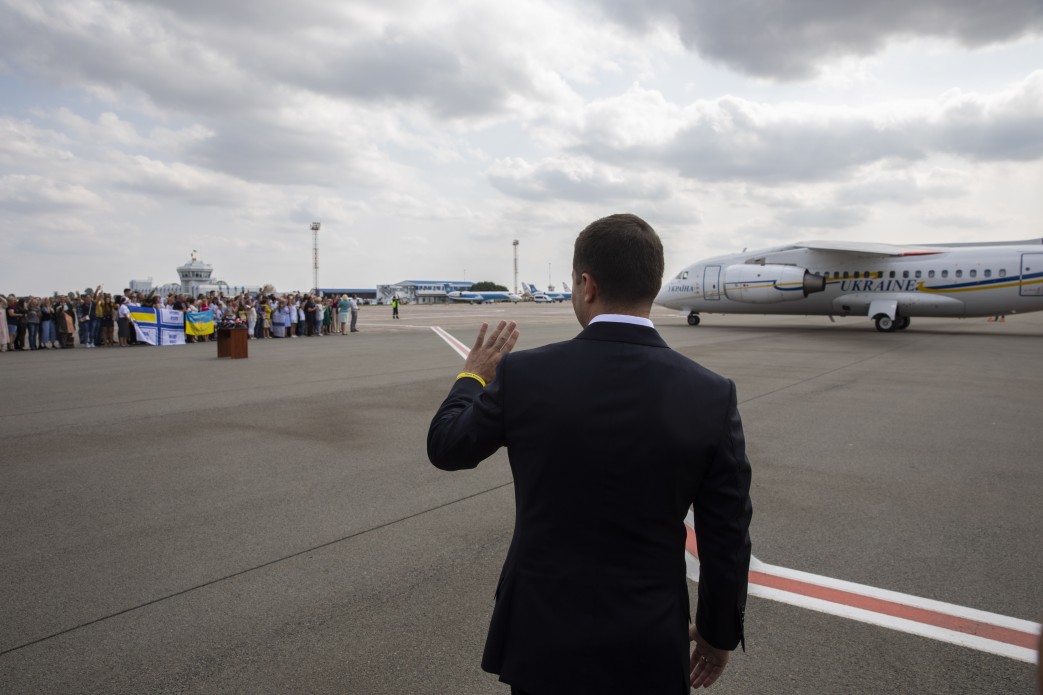On 1 April 2022, officials from Ukraine and Russia conducted a prisoner exchange under an agreement reached by earlier negotiations. Hundreds of service personnel on both sides of the Big War have been captured and await release to return home.
Kyrylo Tymoshenko, Deputy Head of the Presidential Office, declared that 86 Ukrainian service members had been repatriated. The prisoner swap took place in Zaporizhzhia Oblast.
Deputy Prime Minister and Minister of Reintegration of the Temporarily Occupied Territories Iryna Vereshchuk also announced the POW exchange on social media:
“We’re bringing 86 of our service personnel home. 15 of them are women! I address all our people who are still in captivity: We will fight for each and every one of you! We will bring everyone home.”
Once on home soil, the soldiers were debriefed and given ample time to rest and reunite with their families. In the meantime, the Ministry of Reintegration of the Temporarily Occupied Territories has published testimonies of two women soldiers - military liaison officers Anastasiya Matrushchenko and Oleksandra Tsepuk.
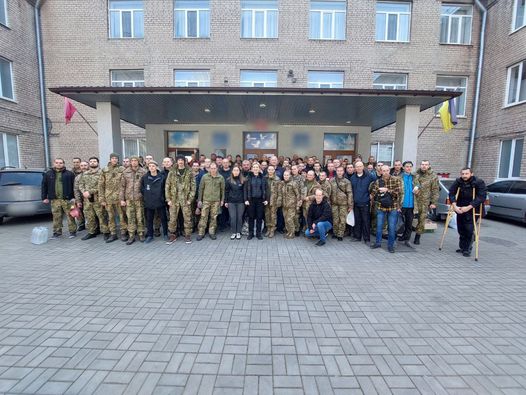
Anastasiya’s story
Russian forces launched a massive offensive on the positions defended by the unit where senior soldier Anastasiya Matrushchenko
served as liaison officer. They came under heavy artillery fire followed by a tank assault.
“A Russian tank fired at the bunker where most of our guys were positioned. When the smoke lifted, they started throwing grenades. They overpowered us, then confiscated our weapons, ammunition, bulletproof vests and mobile phones. Next, they blindfolded us and tied our hands behind our backs,” she recalls.
The prisoners were transported to Belarus. The Russians harassed them all along the way. Anastasiya remembers a grimy-looking soldier, who was probably a Central Asian national, approaching and threatening to kill them, shouting loudly that they would not live to see the morning.
“Meanwhile, we could hear terrifying sounds coming from the other room, where our servicemen were being interrogated…” she adds quietly.
Some days later, the Ukrainian prisoners were transferred to prison camp No.3 near Bryansk.
The women endured terrifying moral and physical agony. They were forced to undress in the presence of men and squat for hours on end. The Russian guards shaved their heads and subjected them to countless interrogations, day and night.
“The prison guards lined us up and tried to break down our morale. One of them kept shouting ‘Glory to Russia!’ He would come up close to each woman’s face, spit and shout the slogan over and over again. He probably expected that one of us would break down and answer his 'greeting.' Our silence enraged them… they rewarded us with torture.”
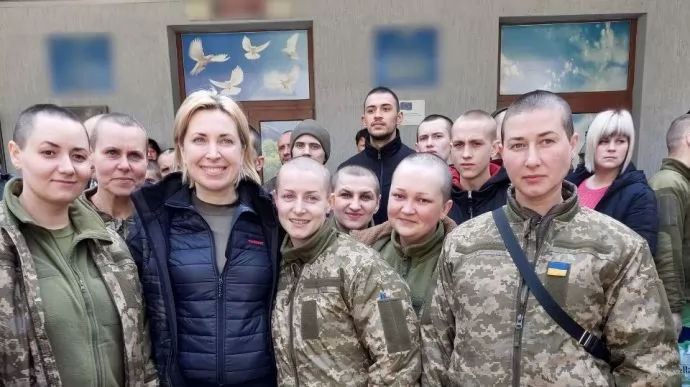
Oleksandra’s story
Oleksandra Tsepuk was stationed at a military communications hub. Russian troops launched a strong attack using heavy weapons, hurling grenades at the bunker. Most of the women soldiers miraculously survived.
“We were almost immediately transferred to Belarus and then further to Russia. During that exhausting journey, they searched us constantly and tormented us with never-ending questions,” she recalls.
Provocations began from the start, in Belarus. Russian television and media reporters arrived frequently to take photos and ask them questions. They were usually accompanied by the Russian military, who were obviously ethnic Central Asians.
“The Russians got really angry at us, shouting obscene words and threatening us with their weapons. In fact, they didn’t like the fact that we spoke Ukrainian… and demanded that we switch to Russian. But hey, I don’t speak Russian. As a matter of fact, very few of us do. This made the reporters and TV crews very, very angry.”
The women were assigned to a cell with two beds and one mattress.
Trending Now
The Russians continued goading the women, demanding that they look at the camera and thank them for “such comfortable conditions” and for their proper behavior toward the prisoners. The women refused.
There is no doubt that the news of the prisoner swap took everyone by surprise.
Why did the Russians shave the heads of the Ukrainian women prisoners?
Olena Kharitonova, Candidate of Law, Associate Professor of the Department of Criminal Law at the Yaroslav Mudry National Law University in Kharkiv writes that shaving women’s heads is an attack on human dignity and an attempt to control the prisoners both socially and mentally.
“Hair is a very powerful symbol of one’s identity and personality. Not only is hair a symbolic reflection of the self, it is actually the self in a literal sense, as it takes root and grows from the physical body and remains in place even after death…
Since the Middle Ages, torturers have included shaving as an important part of their ritual. Their goal is to humiliate and degrade the prisoner.”
Dr. Martin Skinner, a social psychologist at the University of Warwick, says hair is so significant because of what it is and where it is.
“…It is part of us, much more intimate than things like clothes. If you cut it away, you are cutting away a bit of yourself. Whatever we do with it is very much part of our identity.”
Historically a shaven head has also always had meaning - and in a woman’s case, mostly negative. Shaving women’s heads as a form of punishment was firmly established during and in the aftermath of World War II.
Both women POWs in German concentration camps and French women accused of fraternizing with Nazis soldiers were punished by having their heads shaved.
In modern legal practice, there have been several instances when the court held that forcibly shaving a person’s head constituted cruel and degrading treatment. In the ECtHR case Yankov v. Bulgaria, for example, the victim’s head was forcibly shaved while in detention. He claimed that this “barbaric” act caused him to suffer particular humiliation as a person “55 years old at the time… with higher education and a doctorate.” In this case, the court decided that such an act was committed in order to subdue and debase the victim.
However, when we look at the photos of these brave Ukrainian women soldiers, we see no shame or guilt, but on the contrary, smiles, bright faces and a sense of pride.
Timothy Snyder: If Ukrainians hadn’t fought back, the world would’ve been a much darker place
The second prisoner swap took place on 1 April in Zaporizhzhia Oblast, where Ukraine's side managed to return 86 service personnel, including 15 women.
According to Iryna Vereshchuk, as of April 3, the Russians still hold eleven mayors or heads of local Ukrainian communities in captivity.
On 9 April, Iryna Vereshchuk announced that 12 Ukrainian soldiers, including one woman officer, were on their way home. Fourteen civilians were also liberated - a total of 26 Ukrainian citizens.
International organizations, including the International Committee of the Red Cross, do not have permission to access Ukrainian prisoners.
The NIB was established on 17 March 2022 to fulfill Ukraine’s obligations under international humanitarian law, including the Geneva Convention relative to the Treatment of Prisoners of War dated 12 August 1949.
The main goal of the NIB is to collect, centralize and summarize information on prisoners of war and service personnel KIA on both sides and to collect information on Ukrainian victims of armed aggression: detained civilians, missing persons, forcibly displaced persons (deported), etc.
In addition, the NIB transfers information on captured Russian servicemen to the Central Tracing Agency of the International Committee of the Red Cross, which acts as a neutral mediator. It also searches for and collects information about detained Ukrainian citizens in the Russian Federation through the Central Tracing Agency. The Central Tracing Agency asks both parties to provide the required information on all captured persons, either alive or dead. Once lines of communication are established, the CTA receives and transmits this information between both parties and the families, about individuals who have been captured, wounded, or who have died.
Read more:
- Support for Ukraine’s EU accession hits historic high of 91% amid Russian invasion – poll
- War diary: “Terrified of what He saw, God has left Mariupol, my neighbor said”
- What is Azov Regiment? Honest answers to the most common questions
- Russian soldiers gang rape Ukrainian women, including little girls: witnesses of rape survivors
- Moscow Patriarchate tells Russian troops: “Your task is to wipe the Ukrainian nation off the face of the earth”
- “They were shot in the back of the head.” Eyewitness account of Russia’s murders of Bucha residents
- Russian ideology: imperialism, militarism, and racism
- Why the world must stop Putin in Ukraine
- Martyred city of Mariupol wiped out of existence by Russia’s incessant shelling


